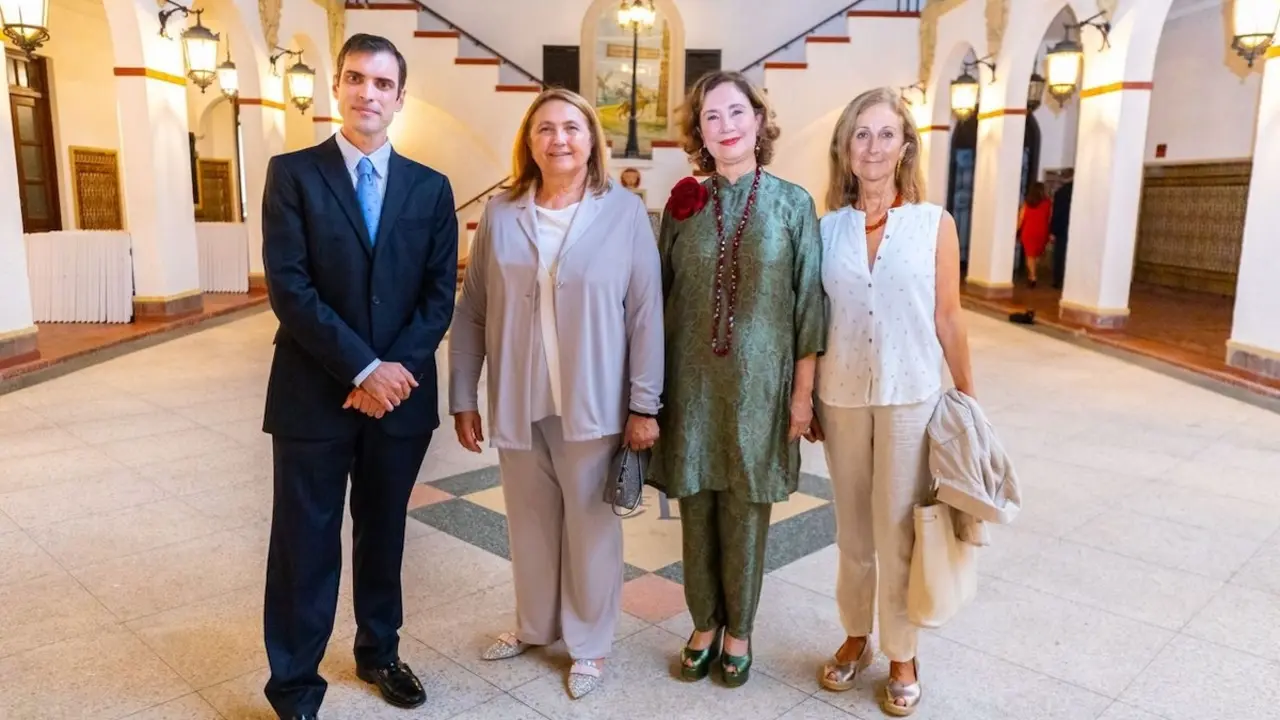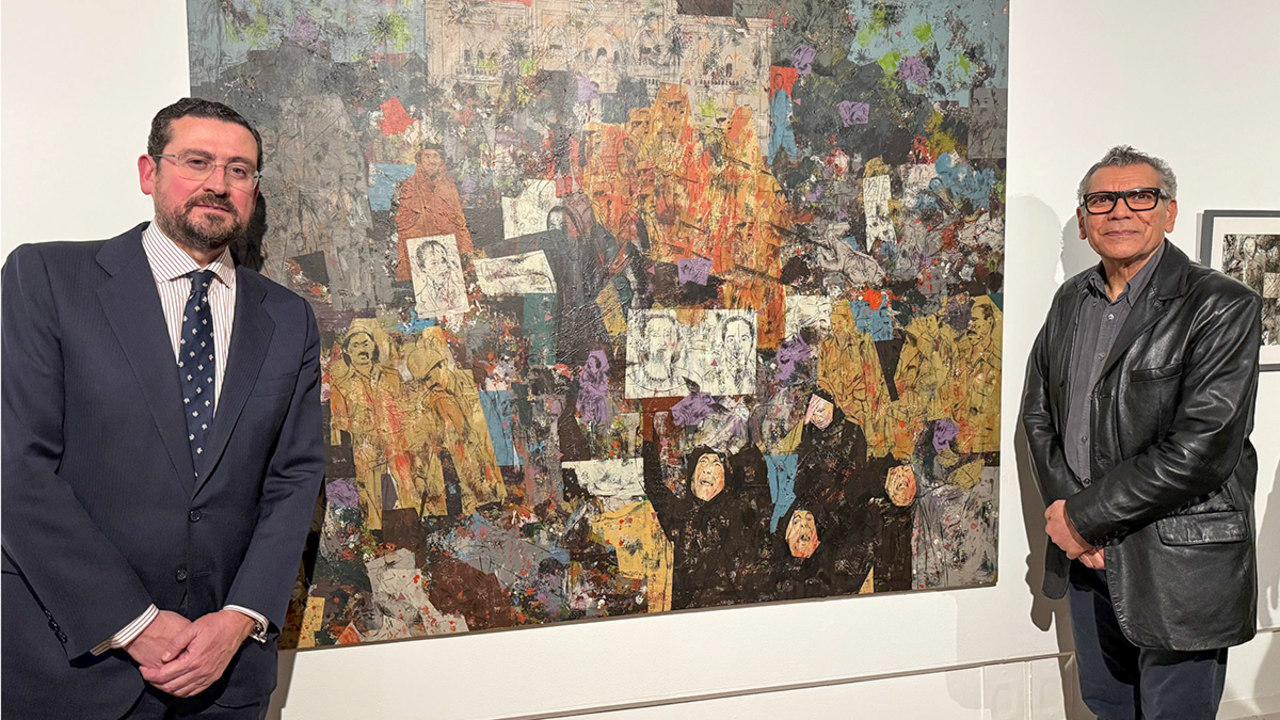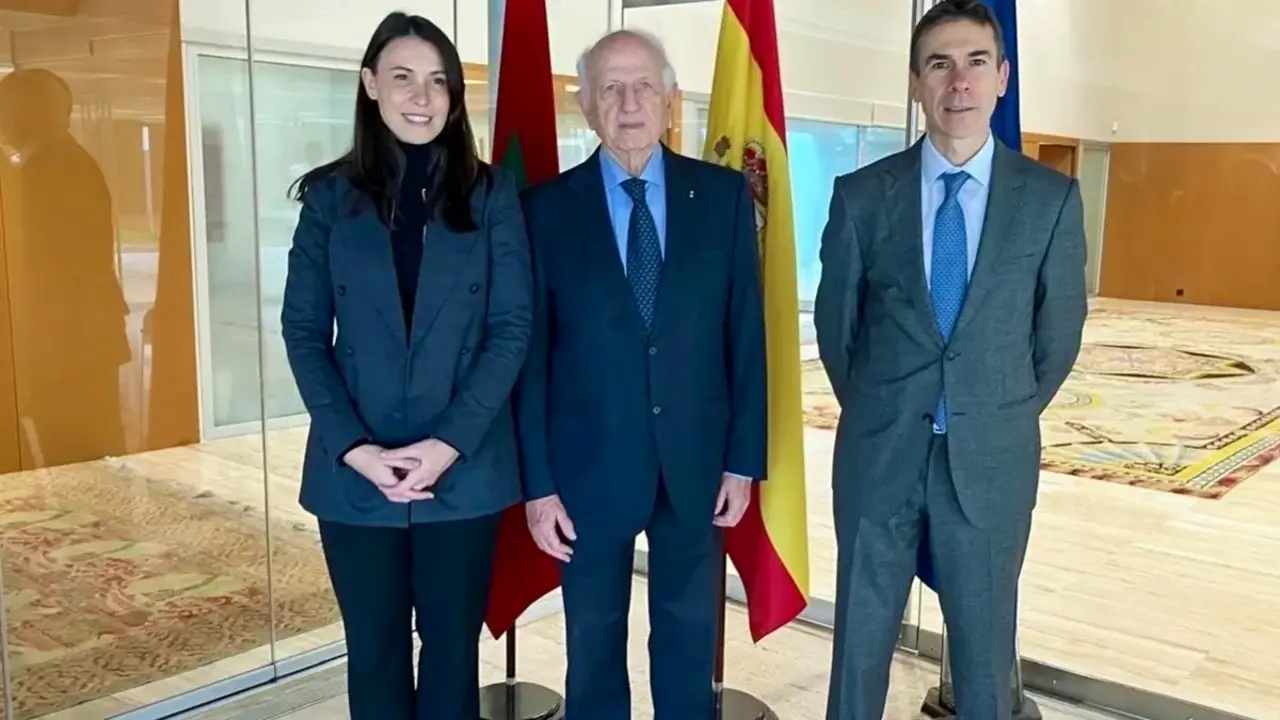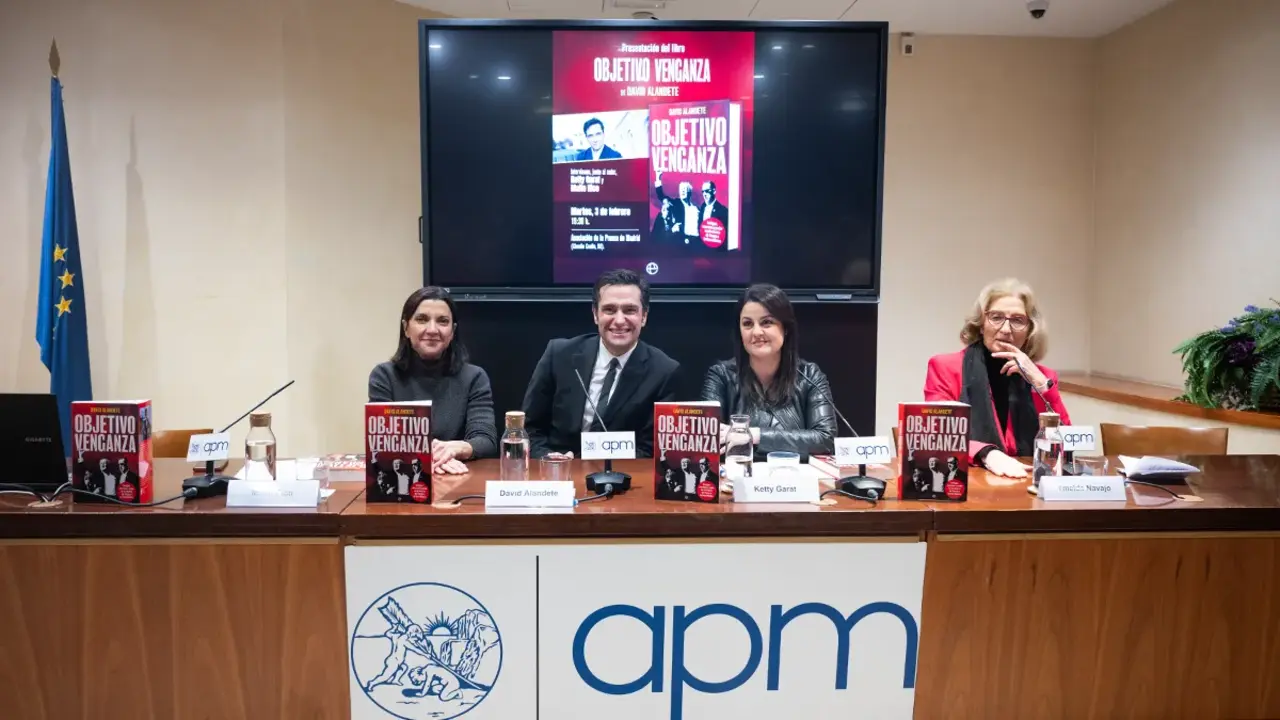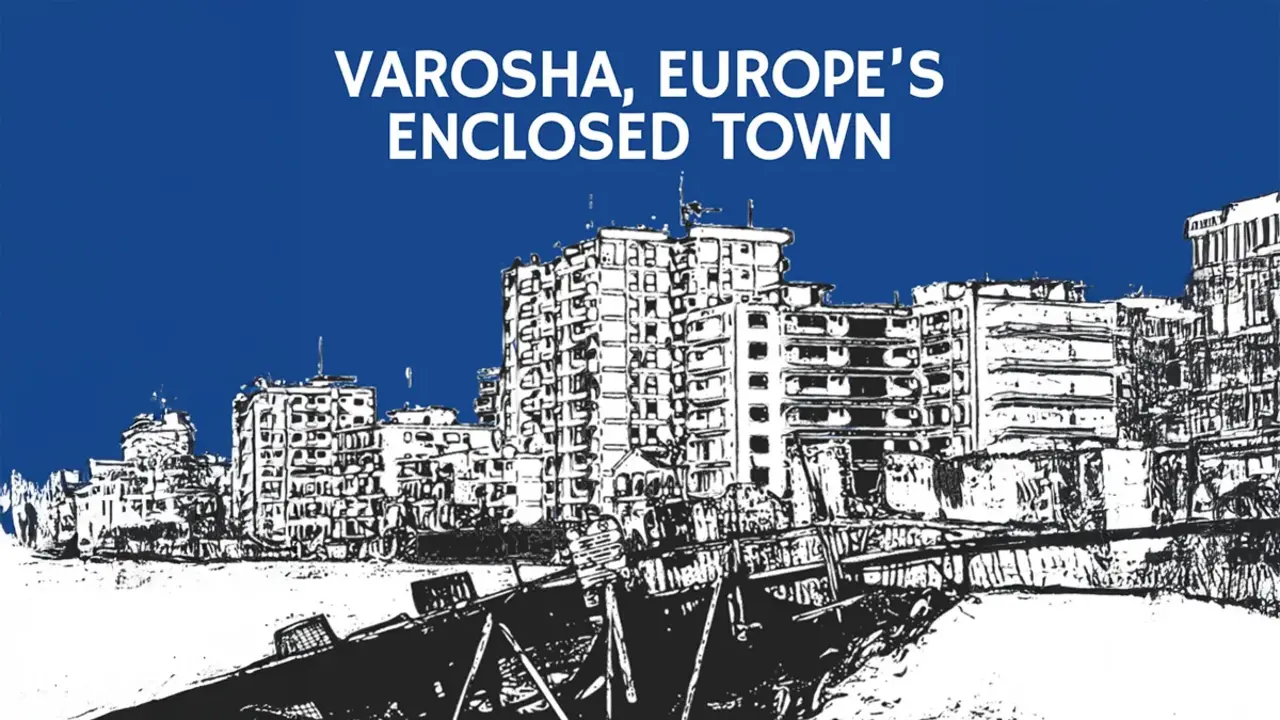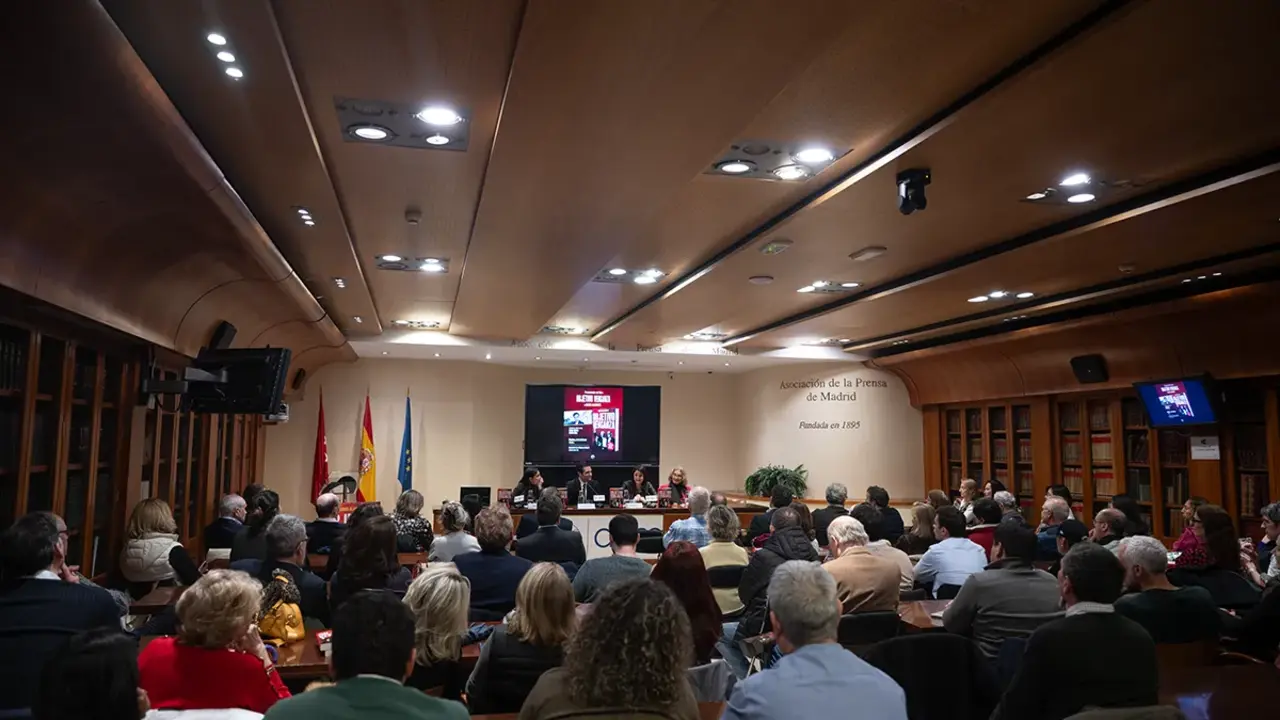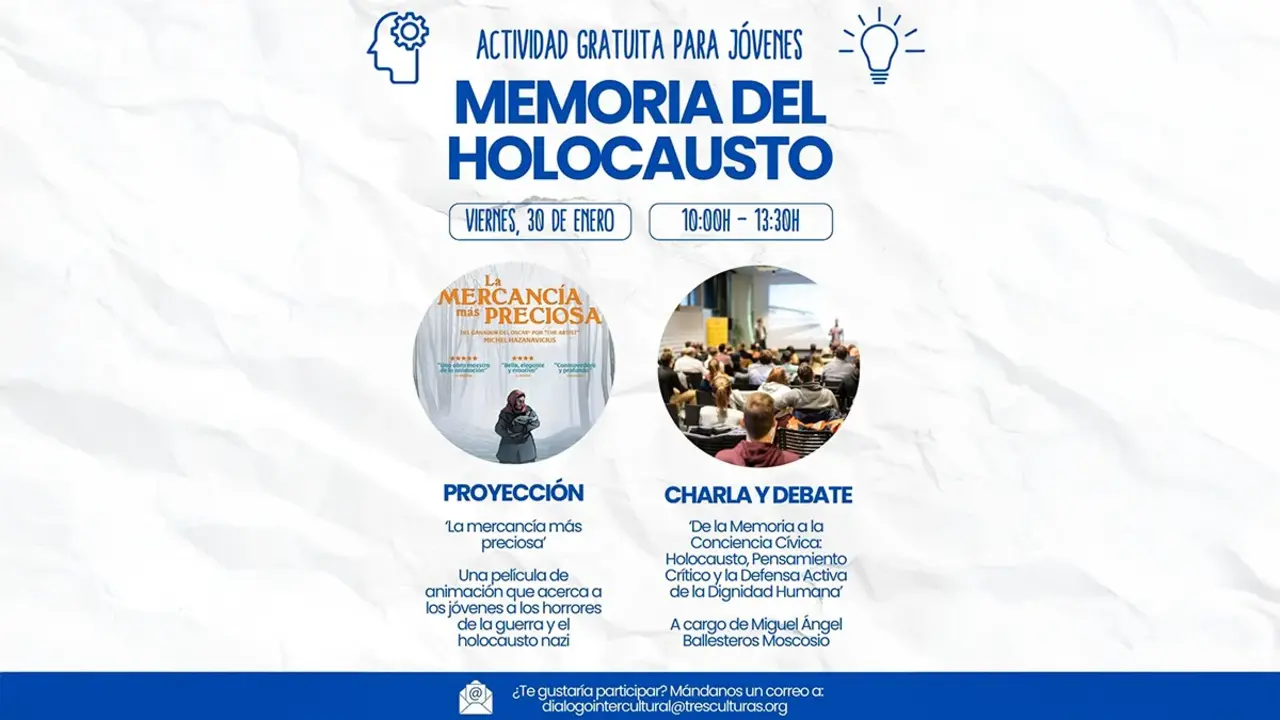García Montero expresses his support for the Lebanese branch of the Cervantes Institute in Beirut

The director of the Instituto Cervantes pledged on Monday in Beirut (Lebanon) to support the centre, which has experienced one of the most difficult situations due to the effects of the pandemic, the economic crisis in the country and the serious damage suffered in the explosion in the capital last summer, despite which "it is already at full capacity". Luis García Montero held a meeting with journalists as the first act of a working trip to support the teaching and cultural work carried out by the Beirut centre, which is celebrating its 30th anniversary, as is the Cervantes Institute itself.
García Montero reiterated his "commitment to the future" with Lebanon, a country in which interest in the Spanish language and the demand for its teaching has increased significantly over the last three decades. The centre is one of the oldest in the network: in 1991 it took over the teaching work carried out by the Spanish Cultural Centre for almost 40 years. It is therefore a double anniversary: that of the creation of the Instituto Cervantes itself and that of the Beirut centre. Three decades in which the centre has never closed its facilities, not even in the worst moments, García Montero stressed, such as the aforementioned explosion on 4 August.
The director also emphasised the importance of the culture of Spanish-speaking countries, not just Spanish culture: "We are part of a community with 23 countries, and our activities include all Latin American countries". An example of this is that the centre's library is dedicated to the Mexican writer Fernando del Paso.
With this day's appearance before the local media, the Director of the Institute began a working trip to Lebanon in which he is accompanied by the Secretary General of the Institute, Carmen Noguero; the Director of International Relations, Rafael Soriano, and the Directors of Academics and Culture, Carmen Pastor and Raquel Caleya, respectively.
The Secretary General explained the current presence of the Instituto Cervantes in Lebanon: the main one is at the Cervantes in Beirut, but its work is reinforced by the classroom in Kaslik and the extension in the city of Tripoli. In all three (centre, classroom and extension) the first online courses were implemented last academic year 2019-2020, launched as a result of COVID-19, an initiative that allows students from all over the country to access Spanish courses online.
Carmen Noguero also gave special relevance to the collaboration programme between the Cervantes Institute and the Spanish Ministry of Defence for the teaching of Spanish, which is carried out by military personnel stationed at the Miguel de Cervantes Base in UNIFIL. The Instituto Cervantes contributes to this humanitarian mission by training teachers and programming cultural activities. Since 2007, a total of 820 military personnel have been trained by the Cervantes Institute and have taught our language to some 6,000 students in the Marjayoun area. The Cervantes delegation will visit the base next Thursday.
Also on the work programme is a visit on Wednesday by García Montero, accompanied by the Spanish ambassador, José María Ferré de la Peña, and the governor of Beirut, Marwan Abboud, to the school being built with funds from Spanish Cooperation (Ministry of Foreign Affairs). The Instituto Cervantes will provide training and teaching materials for 600 students between the ages of 12 and 17.
For her part, the director of the Beirut centre, Yolanda Soler Onís, recalled that the centre has maintained its teaching and cultural activity despite the difficulties, which has allowed it to reach 1,600 enrolments this year, "a great figure, given the situation". And he announced that the Cervantes will for the first time extend its cultural and teaching activities to the Bekaa Valley.
It will be precisely there, in Baalbek, where the Instituto Cervantes in Beirut "is going to fulfil a dream": tomorrow Tuesday it will present (at the legendary Palmyra Hotel in the town) the Spanish translation of a book of poems by Talal Haidar (Baalbek, 1937), a renowned Lebanese poet and filmmaker. It will be the first volume of the 'Cuadernos de Baalbek Collection', and has been made possible thanks to an agreement with the Lebanese University, which selected the translators. The collection, which will continue with other Lebanese authors, has a twofold objective: to make the work of these creators known among Spanish-speaking readers and to promote the work of young translators from Arabic into Spanish.
Yolanda Soler also reported on two exhibitions scheduled for these days: the first, on Monday, the exhibition 'Patria común. Delibes ilustrado', which brings together 30 original illustrations created by 15 cartoonists, based on texts and children's characters from the work of Miguel Delibes. García Montero and the Spanish ambassador to Lebanon will tour the exhibition together with ambassadors from Latin American countries accredited in Beirut.
The other exhibition will be inaugurated by García Montero on Thursday during his visit to the Miguel de Cervantes base in Marjayoun. Entitled 'En primera línea' ('On the front line'), it is made up of photographs taken by Diego Ibarra Sánchez (Zaragoza, 1982), a photojournalist, related to the slogan "How wars affect education".
Submitted by José Antonio Sierra, Hispanismo advisor

